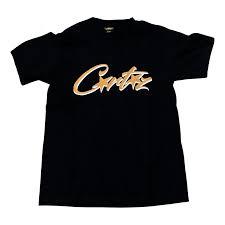What Are the Best Vitamins for Hair Growth?
Healthy, luscious hair is a universal desire, yet many struggle with issues like thinning, hair fall, or slow growth. While external care like shampoos and oils can help, the foundation of healthy hair begins from within, with the best vitamins for hair growth and the proper nutrients. This post explores the best vitamins for hair growth, why they matter, and how to incorporate them into your daily routine.
The Importance of Vitamins for Hair Health
Vitamins are crucial in maintaining overall health, and their impact on hair health is no exception. A balanced diet rich in essential vitamins can significantly contribute to strong, shiny, and healthy hair. When hair lacks the nutrients it needs, it can become brittle, thin, and prone to breakage. Understanding the importance of vitamins for hair health and how they work can help you take proactive steps to enhance the quality and growth of your hair. At Smart Restoration, we pride ourselves on seamlessly integrating nature and scientific research in our supplement formulations.
The best Vitamins for Hair Growth
When choosing the best vitamins for hair growth, it’s essential to focus on products that target the specific needs of your hair, scalp, and overall body. Below is a detailed explanation of the most effective supplements to revitalize and strengthen your hair:
Biotin (Vitamin B7): The Hair Growth booster
Biotin is one of the most well-known nutrients for promoting hair growth. This water-soluble vitamin is crucial in keratin production, a protein that strengthens hair strands and improves their texture. A biotin deficiency can lead to brittle hair and slower growth.
Food Sources: To naturally boost biotin levels, incorporate eggs, almonds, walnuts, whole grains, and bananas into your diet.
Supplements: Biotin supplements are widely available, but consult your doctor before starting them to avoid overconsumption.
You may experience thicker, healthier hair over time by ensuring adequate biotin intake.
Vitamin D: Creating New Follicles for Growth
Vitamin D is vital for stimulating hair follicle development. New follicles mean more hair growth space, making this vitamin essential for thinning hair.
Sources: Sunlight is the best source of Vitamin D, but foods like fatty fish, mushrooms, and fortified dairy products can also help.
Vitamin D deficiency has been directly linked to conditions like alopecia. Regular exposure to sunlight and a balanced diet can help mitigate these risks, ensuring your hair remains vibrant and robust.
Vitamin E: Protecting Your Hair from Damage
Vitamin E is a powerful antioxidant that reduces oxidative stress that can harm hair follicles. It also boosts blood circulation to the scalp, ensuring that essential nutrients reach the roots.
Sources: Sunflower seeds, spinach, and avocados are rich in Vitamin E.
Using Vitamin E in your diet or applying it topically through oils can make your hair shinier and healthier.
Iron: Boosting Oxygen Supply to Your Follicles
Iron is a game-changer for those seeking fuller hair. It enhances the delivery of oxygen and nutrients to the scalp, fostering an ideal environment for hair growth.
Sources: Include red meat, lentils, spinach, and fortified cereals.
Low iron levels, particularly in women, are a common cause of hair loss. Regularly consuming iron-rich foods can prevent this issue.
Vitamin C: The Collagen Builder
Vitamin C helps produce collagen, a protein crucial for hair structure. It also aids in iron absorption, making it a double-edged sword for hair health.
Sources: Citrus fruits, strawberries, and bell peppers are excellent choices.
Regular Vitamin C intake keeps your hair strong, shiny, and resistant to damage caused by environmental stressors.
Supplement Use and Safety: What You Need to Know
Supplements can be a valuable addition to your routine, especially if you’re dealing with deficiencies that impact hair health. However, using them correctly and safely is essential to achieve desired results while avoiding potential risks. Here’s what you need to consider about supplement use and safety:
Understand Your Needs
Before taking any supplement, identify your nutritional gaps or health concerns. Supplements should complement your diet, not replace it.
- Tip: Consult a healthcare professional for blood tests to determine deficiencies.
- Example: A targeted supplement can support hair growth and overall health if you lack Vitamin D.
Choose Quality Products
Not all supplements are created equal. Opt for products from reputable brands that adhere to safety and quality standards like GMP (Good Manufacturing Practices).
- Tip: Look for third-party testing certifications to ensure purity and effectiveness.
- Example: Avoid products with artificial fillers, as they can dilute the supplement’s potency or cause adverse effects.
Follow the Recommended Dosage
Exceeding the recommended dosage of vitamins and minerals can lead to toxicity and side effects, such as hair thinning or nausea.
- Tip: Always read the label carefully and stick to the suggested dosage unless advised otherwise by a doctor.
- Example: Overloading Vitamin A can cause hair loss instead of promoting growth.
Maintain a Balanced Approach
Supplements work best with a balanced diet, regular hydration, and a healthy lifestyle. They’re not a cure-all but rather a supportive measure for hair health.
- Tip: Incorporate whole foods rich in hair-friendly nutrients like leafy greens, nuts, and fatty fish.
- Example: A diet rich in iron and zinc can naturally enhance the benefits of hair supplements.
Conclusion
Incorporating the best vitamins for hair growth into your diet is a natural and effective way to improve hair health. From biotin to Vitamin E, each nutrient uniquely nourishes your scalp and hair follicles. While topical treatments help, the fundamental transformation happens when you address deficiencies from within. Smart Restoration recommends maintaining a balanced diet, supplemented with essential vitamins where necessary, for optimal hair health.





